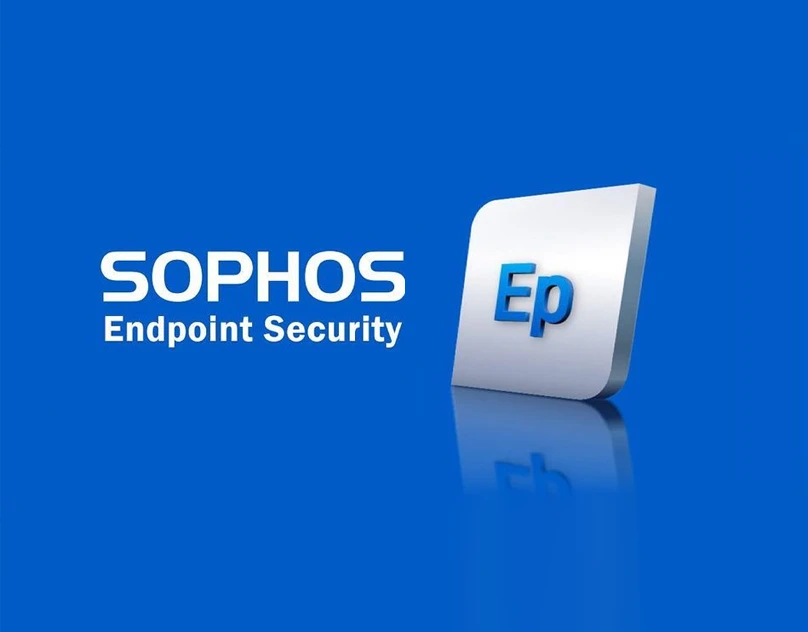Endpoint Security Services
With our expertise and advanced security tools, we deliver unparalleled endpoint security services, ensuring the protection and integrity of your critical assets
Get in touch
Some Endpoint Security Products
key Products
Mignet Technologies, a leading Managed Security Service Provider (MSSP) specializing in cutting-edge Cyber Security Solutions.
Bitdefender
Bitdefender is a powerful cybersecurity solution, offering comprehensive protection against malware, ransomware, and phishing attacks. With advanced technology and real-time threat detection, Bitdefender keeps you safe while browsing, banking, and engaging in digital activities. Trust Bitdefender for reliable and effective cybersecurity.ed by Microsoft as part of its Microsoft 365 suite of services. EOP provides protection against a wide range of email-borne threats, such as spam, phishing, and malware

Cisco AMP
Cisco AMP (Advanced Malware Protection) is a cutting-edge cybersecurity solution that offers comprehensive defense against advanced malware and targeted attacks. With its advanced threat detection capabilities and continuous monitoring, Cisco AMP provides real-time visibility and protection for endpoints, networks, and cloud environments.

Sophos
Sophos is a leading provider of cybersecurity solutions, delivering advanced protection against malware, ransomware, and other digital threats. With its comprehensive suite of products, including endpoint security, network protection, and encryption solutions, Sophos ensures the security of individuals and businesses.

Microsoft Defender
Microsoft Defender is a comprehensive security solution provided by Microsoft for protecting computers and devices running on the Windows operating system.

CrowdStrike
CrowdStrike is a global cybersecurity leader with an advanced cloud-native platform for protecting endpoints, cloud workloads, identities and data.

Sentinel One
Endpoint protection software that defends every endpoint against every type of attack, at every stage in the threat lifecycle.


Why is endpoint security important?
Endpoint security is crucial because endpoints are often the primary entry points for cyberattacks. As organizations increasingly rely on interconnected devices and remote access, securing endpoints becomes essential to prevent unauthorized access, data loss, and potential damage to systems and networks.
- Endpoint security is relevant for both businesses and individuals. Businesses need to secure their endpoints to protect sensitive data, prevent business disruptions, and comply with regulations. Individuals also benefit from endpoint security to safeguard personal information, prevent identity theft, and maintain the privacy of their devices.

Testimonial








Special shout out to Anjali and Praveen
Our Endpoint Security Services include
key Services
Mignet delivers comprehensive endpoint security solutions designed to protect your devices, data, and users against cyber threats, threat detection, encryption, and centralized management for complete protection.
Endpoint Security Deployment
Our skilled team will seamlessly deploy industry-leading Endpoint Security Solutions across all endpoints within your organization, encompassing desktops, laptops, servers, and mobile devices. We handle the installation and configuration processes to provide you with robust and comprehensive endpoint protection.
Threat Monitoring and Detection
Our vigilant monitoring services leverage advanced threat intelligence and detection mechanisms. We continuously monitor your endpoints, swiftly identifying and responding to potential threats in real-time. From malware and viruses to ransomware and other malicious activities, we keep your endpoints secure.
Endpoint Security Updates and Patch Management
We ensure that your deployed security solutions stay up to date with the latest patches and updates. By promptly addressing known vulnerabilities and staying ahead of emerging threats, we bolster your endpoint security posture.
Endpoint Protection Configuration
We understand that every organization has unique security requirements. Our experts tailor the configuration of Endpoint Security Solutions to align with your specific needs and security policies. This includes setting up antivirus, anti-malware, firewall rules, and other essential security features, providing you with optimal protection.
Security Reporting and Analytics
Gain valuable insights into your endpoint security through our comprehensive reports. We generate regular reports that highlight threats detected, security incidents, system vulnerabilities, and overall security posture. These reports enable you to make informed decisions and continuously improve your security measures.
Endpoint Encryption and Data Protection
As an additional layer of data protection, we assist in implementing endpoint encryption solutions. By encrypting sensitive data stored on your endpoints, we safeguard it against unauthorized access, providing you with enhanced data protection.
What’s considered an endpoint?
Endpoints
Endpoints encompass a wide range of devices, extending beyond the commonly recognized ones.
Traditional devices
These are the devices that are typically associated with endpoints, such as desktop computers, laptops, smartphones, and tablets. These devices serve as direct interfaces for users to access and interact with various systems and networks.
Internet of Things (IoT) devices
IoT devices are a growing category of endpoints that connect to the internet and can communicate with other devices or systems. They include smart home devices like thermostats, security cameras, smart appliances, and wearable devices like fitness trackers and smartwatches.
Embedded systems
Embedded systems refer to computing devices that are integrated into other devices or machinery. They perform specific functions and often have limited computational capabilities. Examples include medical devices, automotive systems, industrial control systems etc.
Virtual machines and containers
Virtual machines (VMs) and containers are software-based endpoints that emulate physical devices or operating systems. VMs run on a hypervisor, allowing multiple operating systems to run simultaneously on a single physical machine.
Network infrastructure devices
Certain network devices, such as routers, switches, firewalls, and access points, can also be considered as endpoints. Although they primarily serve to enable communication between other endpoints, they have their own management interfaces
Cloud-based endpoints
With the increasing adoption of cloud computing, cloud-based endpoints have become relevant. These include virtual desktops, cloud storage services, cloud-based applications, and cloud-managed devices.
asked questions
End Point Security FAQs
Endpoint security refers to the practice of securing endpoints, which are individual devices or machines that connect to a network. It involves implementing measures to protect these endpoints from various threats, such as malware, unauthorized access, data breaches, and other cybersecurity risks.
Endpoint security addresses a range of threats, including malware (such as viruses, ransomware, and spyware), phishing attacks, data breaches, unauthorized access, insider threats, and device theft or loss. It aims to protect endpoints from both external and internal threats.
Emails can be intercepted, read, or altered while in transit or while being stored on servers. Unencrypted emails can be easily read by anyone who gains access to the network. Email accounts can also be hacked or compromised, allowing unauthorized access to sensitive information.
However, there are steps that can be taken to improve the security of email, such as using encryption, implementing multi-factor authentication, and being cautious of suspicious emails and links. It is important for individuals and organizations to stay informed about the latest email security threats and best practices to protect against them.
Yes, mobile devices like smartphones and tablets are considered endpoints. They are susceptible to similar security risks as other endpoints, and it is important to implement endpoint security measures on mobile devices, such as mobile device management (MDM), secure app installation, and remote wipe capabilities.
Endpoint detection and response (EDR) is a security technology that focuses on real-time threat detection and response on endpoints. EDR solutions monitor endpoint activities, collect data, and use advanced analytics to detect and respond to potential security incidents, such as unusual behavior, suspicious network connections, or known malicious patterns.


